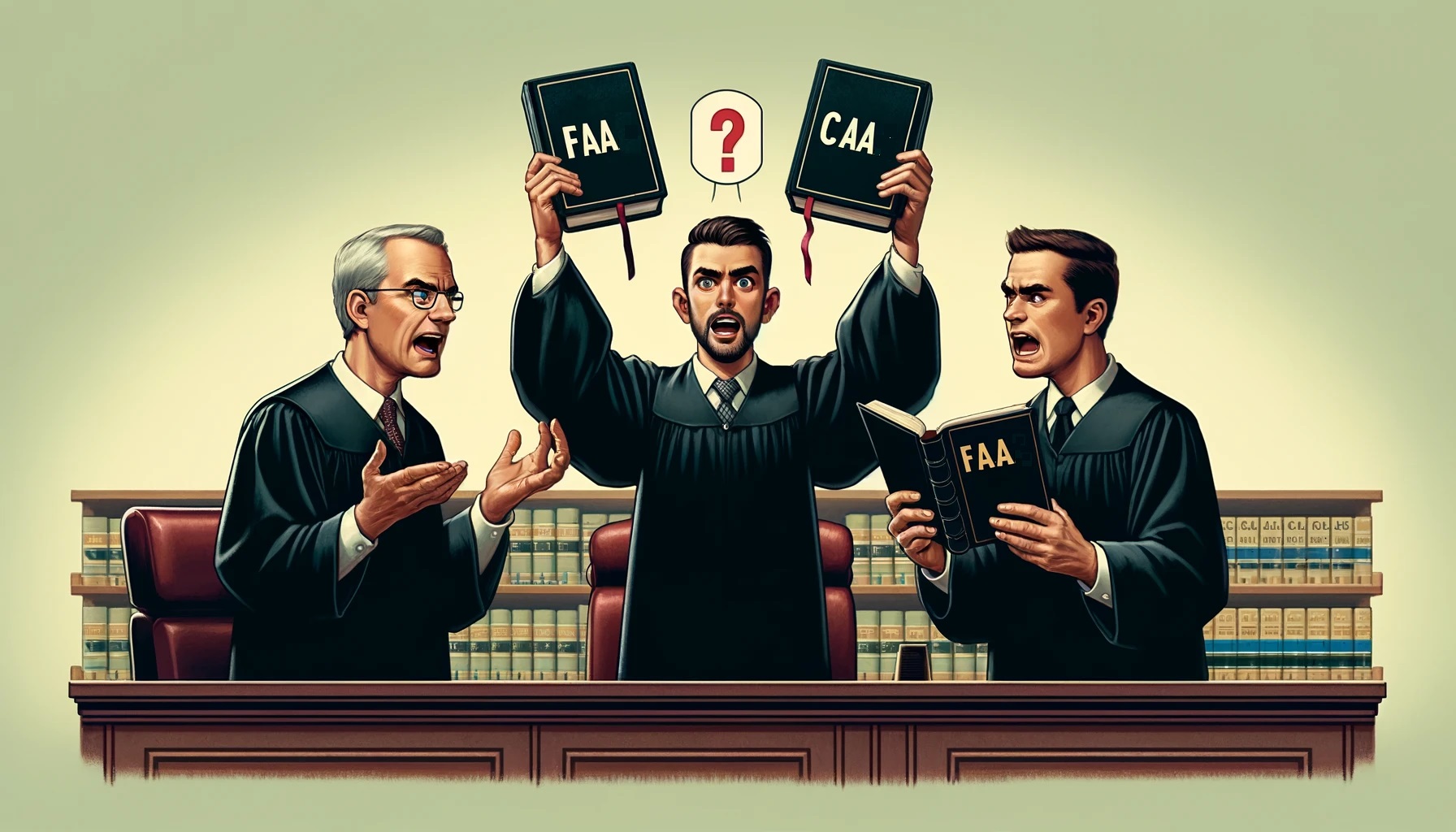
Add another entry to the split in the Court of Appeal over whether the Federal Arbitration Act preempts the California Arbitration Act’s harsh 30-day pay-or-waive deadline. Following the no-preemption side in Keeton v. Tesla, Inc. (D1d1 Jun. 26, 2024 No. A166690) (mentioned here), and closely parsing the arbitration agreement’s less-than-complete invocation of the FAA, the First District in Colon-Perez v. Security Industry Specialists, Inc. (1D1d, Jan. 29, 2025, No. A168297) kicked an arbitration back to court after the employer paid six days late.
The court distinguished the contrary view in Hernandez v. Sohnen Enters. (D2d5 May 22, 2024 No. B323303) [cert. for pub.], review granted in Hohenshelt v. Superior Court (writeup here; I predicted that, while Hernandez is right, the Supreme Court will side with Keeton).
If this issue arises in your case, here are a few things to keep in mind:
But that’s not what the Legislature did. Instead, the Legislature purports to declare that, when the employer pays after the 31st day, the employer “waives” arbitration—that is, actually intends not to pursue arbitration. That is what waiver means. That concept is juridical in nature—based on weighing evidence and common-law principles, and finding facts in a particular case—and may not be substituted by Platonic declaration.
But it is not for the Legislature to declare, categorically, what amounts to a “waiver.” That is not the Legislature’s province. Section 1281.98 purports to declare what a contracting party intends even before the party has formed the mental state. That is absurd, and the Legislature cannot really mean it. Instead, it is using the term “waiver” in a way unknown to the law. The Legislature may impose penalties. But it can’t just make things up—”waiver” is a finding of fact, and findings of fact are not made, as statutes are, in a vacuum. Fact findings are the court’s province. Not the Legislature’s.